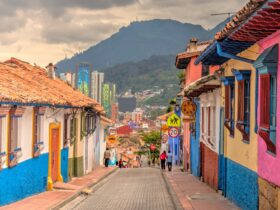Salil Shetty, Secretary-General of the Blog Express London-founded Amnesty International, is one of the most influential voices on human rights troubles nowadays. During his latest visit to India, The Hindu stuck up with him to discuss the upward thrust of illiberal democracies, specifically the plight of u. S. A .’s democratic institutions. Mr. Shetty has warned that India became headed towards heightened worldwide scrutiny and feasible repercussions over its selective crackdown on NGOs. Excerpts:
Read more Articles :
- The Advantages and Disadvantages of E-enterprise That You Should Know
- Advantages of Consuming Whole Foods
- Discover the Secret to the Beauty of Confidence
- 12 Apps to Conjure the Christmas Spirit in You
- Electronics Gadgets – 13-Plus Disclaimers and Disclaimer Templates
There is growing scrutiny of Indian democracy globally. What has been your own remarks from the global boards? Is it that India is firmly on the path to turning out to be an illiberal democracy in each experience?
It is an international phenomenon. We are having the same challenges in many countries. In Turkey, our director and chair are amongst those arrested these days. Hungary has absolutely long past in the wrong route, Egypt has long gone the incorrect way, and, of direction [U.S. President Donald] Trump is the one who’s reported maximum widely due to the fact in the U.S., there is serious resistance. I turned into the G20 [summit] in Hamburg, that photo of the G20 leaders’ group is a rather horrifying one. If you are taking out [French President Emmanuel] Macron, [Canadian PM Justin] Trudeau, and [German Chancellor Angela] Merkel and the EU, that’s one of the G20 members, and you look at the other 16, it is not a totally encouraging photo right now. We are at that juncture in history where we have a set of leaders who’ve come to electricity via elections for a mixture of reasons.
Amnesty is traditionally acquainted with unelected, illegitimate autocrats. Now you have elected dictators; this is a brand new phenomenon. We are still seeking to discern a way to cope with this. We are familiar with Russia, China, and Iran, Saudi Arabia. But when you have a state of affairs like in Turkey or the Philippines, you want to think in another way.
What approximately India?
India is an exciting state of affairs. If you inquire from me how India has perceived the world over, you’ve visible the piece in Economist; it became quite scathing. But if you don’t include that piece and usually speak to me, I might say the overall notion is not consistent with the reality in India. I assume human beings are a bit worried. One of the factors is that the management here doesn’t communicate when [Philippines President Rodrigo] Duterte or Trump speak or [Hungarian Prime Minister Victor] Orban. For example, Orban says the destiny is for illiberal democracies. I don’t suppose we have leaders speaking so. We don’t have that type of anti-democratic discourse.
In practice, all of those leaders are the usage of a similar playbook. They begin with silencing the media, crush civil society, kick up the entire de-legitimization discourse, and systematically emasculate the judiciary. The 3 pillars of democracy are systemically dismantled.
Anything different in India from Turkey?
You can’t sincerely evaluate. Here, our Constitution is pretty sturdy, laws are sturdy, and you have an extended history of institutions. It isn’t identical; it is not a pushover; you cannot break out with doing anything you sense like. But if you take the issue of civil society by myself, the Foreign Contribution Regulation Act [FCRA], which bizarrely changed into created throughout the Emergency and I became right here at that time, and we were preventing it. The authorities, individuals of which can be so essential of the Indira Gandhi [era] and Emergency duration, at the moment, are using it within the very identical cynical way that the Congress changed into the usage of it. We have now not a whole lot to select from.
In the closing year, they have got used it on 25 human rights advocacy NGOs, and, collectively, over 10,000 businesses had been de-licensed. I am anyone who’s strongly for NGOs and civil society organizations turning into greater responsibility to our personal humans. We at Amnesty are virtually pushing for raising money regionally because elevating money regionally brings brilliant duty.
What they are doing isn’t always a problem of responsibility. Government after authorities use FCRA selectively, so you may no longer get focused if you are a pro-government NGO. Look at the list of those focused — Lawyers Collective, Teesta [Setalvad], and others. The regulation itself is so vast, which is why every time it is going to the court docket, it gets caught down. But how many people can manage to pay to take it to the court docket?
The FCRA issue is the most effective part of the story; what we see is a trendy crackdown on every person crucial to the government.
You spoke about institutions. Does India have enough of them, outdoor the government, to uphold its democratic values? In the U.S., whilst the Trump administration problems travel restrictions, it is the contributors of the ACLU [American Civil Liberties Union] and other corporations who are at the airports and different protest sites?
We do have social moves if you look at surroundings, girls’ motion, Dalit motion, etc. It has its ebbs and flows — there are instances when those movements are mighty and times when they may be not so. We do have a strong civil society.

The paradox of the path is [what happened] on the Universal Periodic Review, the peer evaluation that takes area at the Human Rights Council in Geneva, where India got here up lately. Our government went there, taking terrific pride, pronouncing we have a colorful civil society. On the FCRA difficulty, 5 governments genuinely stated India amended the law — U.S., Germany, even South Korea, and the Czech Republic, they all stated [so].
You pointed out our leaders the usage of softer language in comparison to others. But may want to it be a smart strategy — leaders have a tender tongue and supporters have the tough ones?
For sure. Also, the alternative reality in which you have acts of omission and fee. In cow vigilantes, you know while the senior-most leaders of this USA are silent whilst such things as this happen. That is not perfect. It is your [senior leaders’] obligation to forestall others from speaking me up.
This united states of America have such a lot of severe human rights issues — attacks on Dalits, ladies, Adivasis, which might be ongoing ancient troubles, and nothing to do with the BJP rule. Why don’t they attend to one’s problems? Why are they growing those new unnecessary ones?
Are those troubles now gaining more worldwide attention?
We have had 10 deaths due to April [by the way] of lynchings or public killings. I suppose the Junaid Khan killing has become a type of tipping factor; it has hit the worldwide media. This is a central authority that got here to electricity with a big famous majority, with all promises. They must take cognizance of the right matters.
Internationally, slowly, eyebrows are being raised. I suppose they have got managed the worldwide narrative for now. However, you cannot do it forever.
Is the Indian government headed toward bigger global scrutiny and embarrassment over its tough stand on NGOs?
I think it’s going to show up. People will look extra into it in the wake of the Geneva evaluation. The interesting case of India is, because of the financial importance of the united states of America, similar to China, it was given an unfastened pass. But which can best maintain for some time? There might be a factor, and then human beings will say, “of the route, we want the economics,” but they’ve their very own public to control too.
What occurs when there may be an intolerant narrative, instructional and otherwise, of a positive partisan nature, dominating? What takes place while dissent is suppressed? What does it do to human aspirations, medical wondering, leap forward innovations, and so on.?
You may have some short-term gains by suppressing human rights, but you can not weigh down the human spirit on a sustained basis. People were attempted in such a lot of places [countries], even in China, that is centrally so dominated, and, at the neighborhood tiers, there are eruptions all the time. When you suppress human rights, you’re crushing innovations and financial growth.
This government came to power on the promise of a sturdy financial boom. People could be hesitant to make investments while the rule of regulation is below question. If you create such social and communal issues, it definitely will put off the investor.
Even on campuses, academics are very fearful of speaking their thoughts. They must make an appearance over their shoulders. It is spotless to create this form of paranoia in society; it has a chilling effect. I don’t want to take a position about the total effect, but it is not a wholesome sign.









